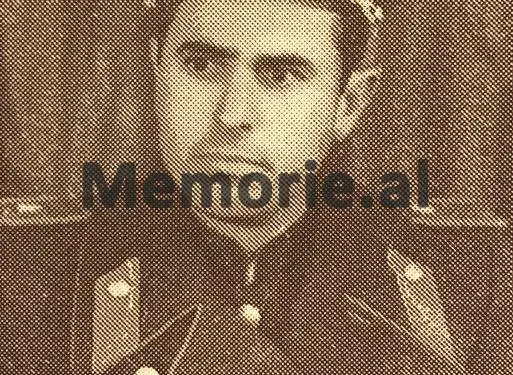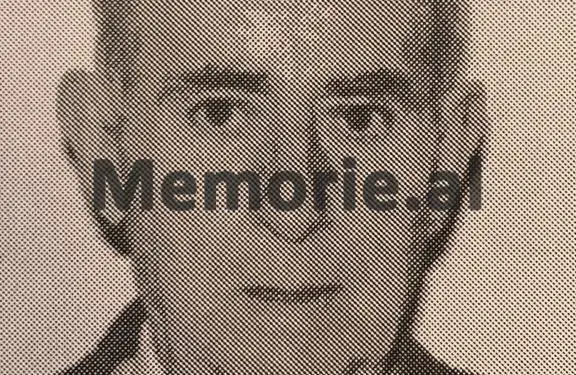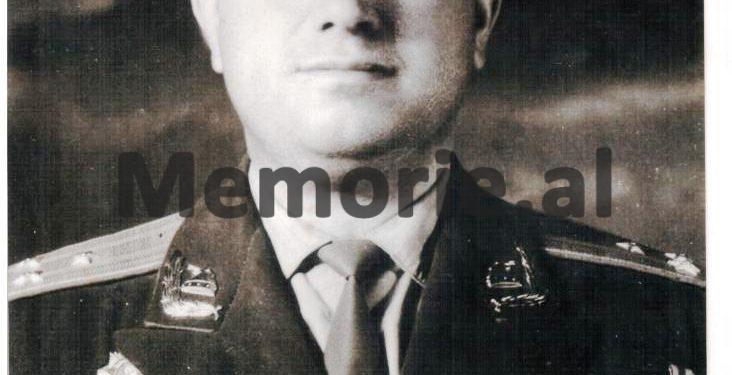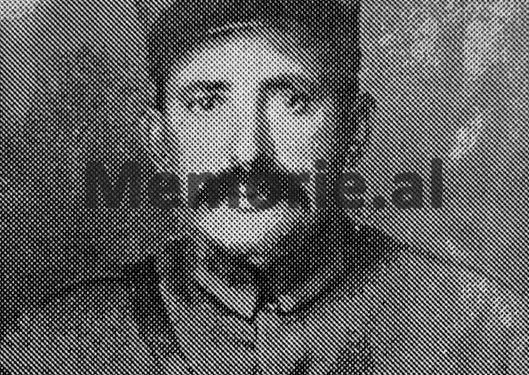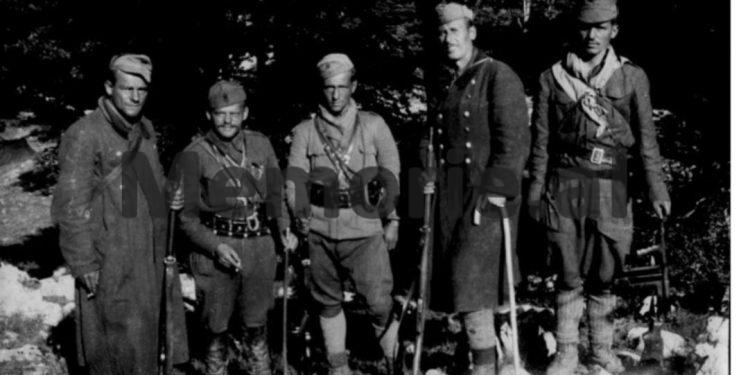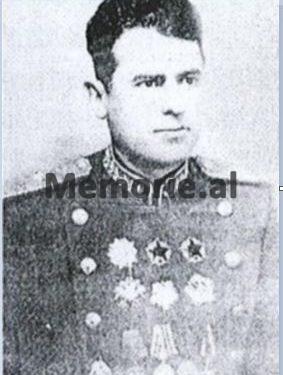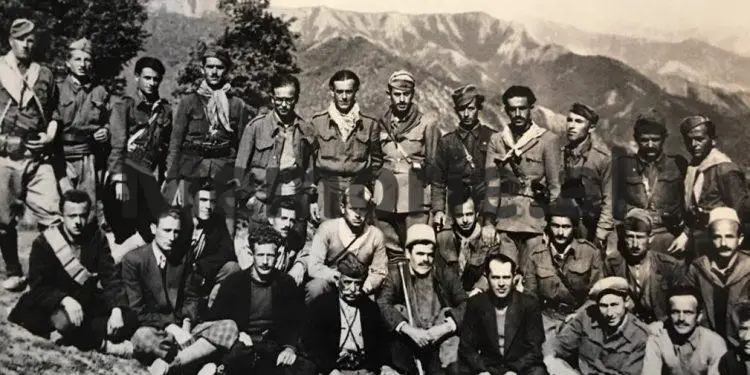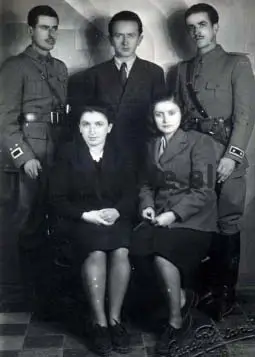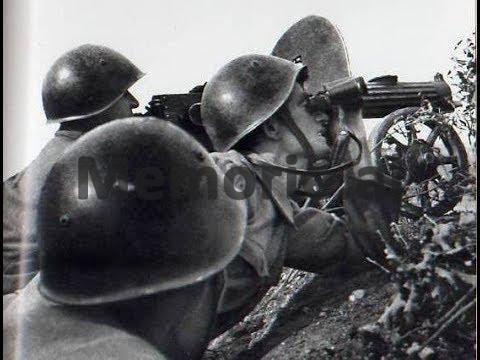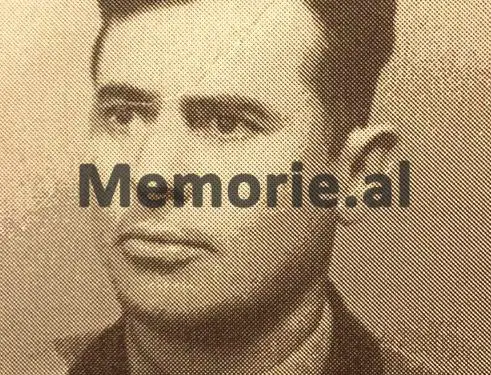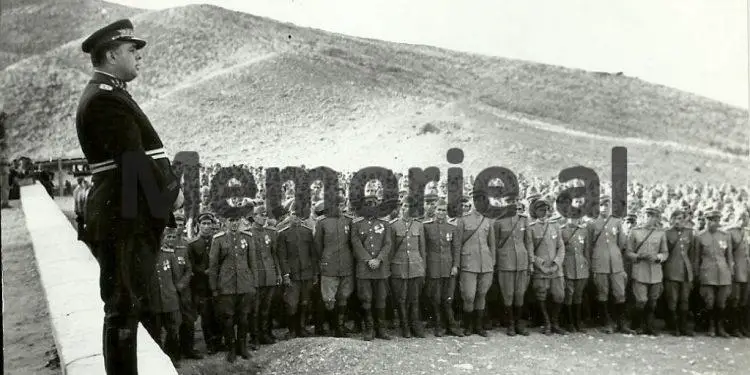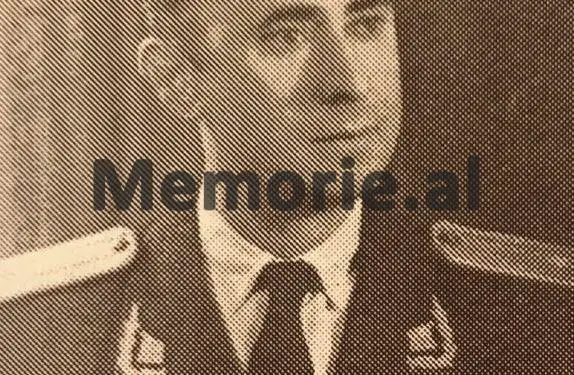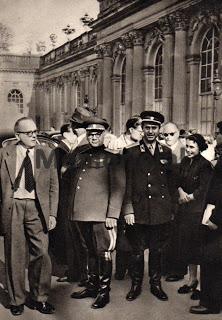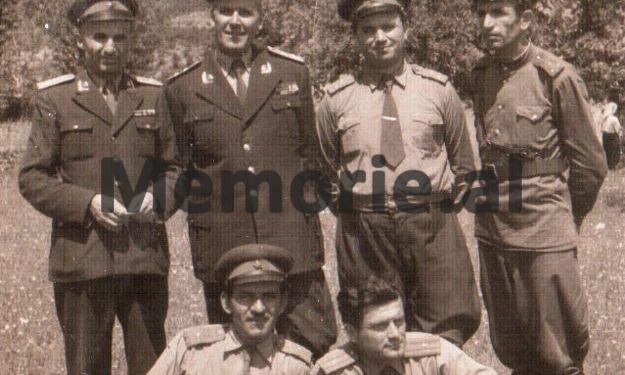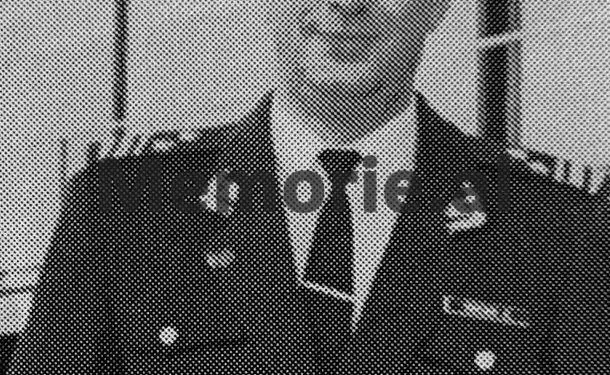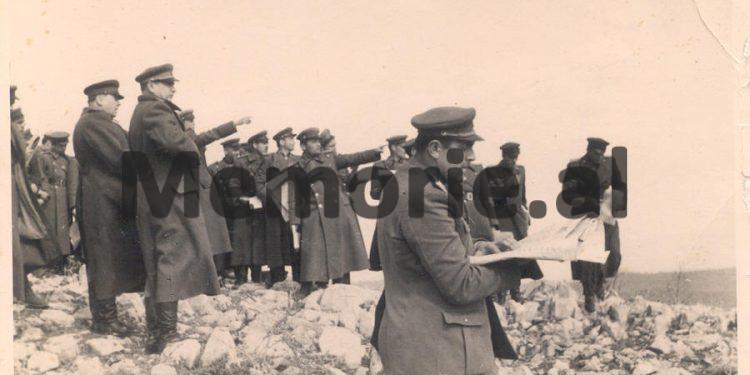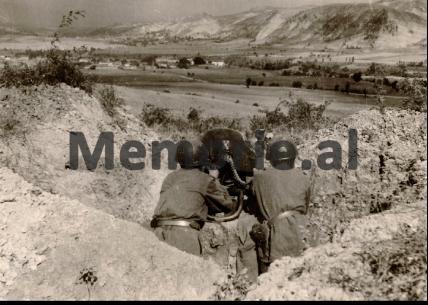Dashnor Kaloçi
Memorie.al publishes the unknown story of Major General Nexhip Vinçani, originally from the village where they inherited the surname, one of the most trained major soldiers of the Albanian Army, who after completing the Royal Military School of Officers during the period of Zog’s monarchy and the classical gymnasium of the city of Shkodra, at 39, went to Italy to the Faculty of Law in Rome, where in 1941 he was expelled for his anti-fascist activity and was forced to return to Albania. His involvement in the Anti-Fascist Movement in the Korça Region together with his three brothers (Ali, Sami and Sali), where as a result of his high military training and the skills he showed in many fights, he was appointed commander. of the partisan headquarters of the Korça Region, commander of the IV Assault Brigade and deputy commander of the Operation in the Fight for the Liberation of Tirana led by Mehmet Shehu.
Testimonies of his brother, Colonel Sami Vinçani, former Chief of Police of the Internal Affairs Branch of Shkodra Region), regarding Nexhip’s military career after the end of the War, where he was appointed commander of the Bishopric Division and he of Korça, in 1945 he was sent to study in the Soviet Union, graduating from the Military Academy “Voroshilov” in Moscow, and in ’48 he returned to Albania, where he was appointed Director of the Operational Directorate in the Ministry of Defense. Deputy Chief of Staff of the Army, and in the “Provocations of August 1949”, he was sent to the front, where he led the fighting together with Major General Mehmet Shehu and Colonel Skënder Malindi.
Major General Nexhip Vincani’s conflict with Enver Hoxha since the First Congress of the Communist Party in 1949, where Enver began to attack him, recalling that he and General Tahir Kadare had incited General Gjin Marku to speak out against Koci Xoxe in so that Koci could make Enver an accomplice, for all the crimes that had been committed up to that time by the Ministry of Interior under the leadership of the SNP, which caused him to start the “witch hunt” to degrade him more after leaving the Army and appointing him as the director of a construction company in the district of Fier, where he lived alone in a hut, after the intrigues of the State Security, he was forced to separate from his wife and his arrest in 1957, accusing him of “being an enemy of the people.” Vinçan’s second arrest in 1982, where after 11 months of intensive investigation under torture he admitted that Mehmet Shehu had been a polyagent and subsequent internment in one of the most remote villages of Gramsh, where he lived all alone in a dog hut until the overthrow of the communist regime of Enver Hoxha, whom he himself had served with devotion and idealism.
It was the end of 1957 when in the Internal Affairs Branch of Shkodra, where I was the Chief of the District Police, I was informed that Minister Kadri Hazbiu was urgently looking for me in Tirana. I took the car of the Branch President, Major General Hilmi Seiti and left immediately for Tirana. Before entering the minister’s office, I met Teki Kolonec, then Director of the Border Directorate, and asked him if he knew anything about why I had been called to the ministry so urgently. Meanwhile, before the speech was over, I was called to the minister’s office where Kadri Hazbiu was waiting for me on foot. After we met, he said to me: ‘Skënder, I called you to go urgently to Durrës, because we will arrest your brother, Nexhip, with all his wife Memka, and you will stay with the small children, because there is no who keeps them. The order for the arrest of General Vinçan was issued by the Minister of Defense, Beqir Balluku, and we will implement it immediately ‘. “I left quickly for Durrës and when I got there I did not find Nexhip at home, because he and his wife had been arrested.”
This is how he remembered the arrest of his brother, Nexhipi, Skënder Vinçani, a former partisan and colonel of the Ministry of Interior who told us the story of his brother, Major General Nexhip Vinçani, the former commander of the IV Partisan Assault Brigade, the deputy commander led the Operation for the Liberation of Tirana and Deputy Chief of General Staff of the Albanian Army until 1957. Who was Nexhip Vinçani, what was his past and why was he imprisoned and tortured in the most inhuman way the Partisan War Hero and the general who had studied law in Rome and graduated from the Voroshilov Academy of the Soviet Union? Were the accusations made against General Vincani at the 5th Plenum of the Central Committee of the ALP, where it was stated that: “in cooperation with the other two generals, Gjin Marku and Tahir Kadare, they wanted to overthrow him through the conspiracy, The Chief of Staff of the Albanian Army, Major General Beqir Ballukun? Why did the rift between Enver Hoxha and General Vinçan start and when did the contradictions between them start? What was the trap organized by the Minister of Interior, Kadri Hazbiu, which led to the arrest of Vinçan and his wife, Memka, and was it true that the arrest warrant was given by Minister Balluku? Why did investigator Shkelzen Bajraktari, when he arrested Vincani in 1982, accuse him of being an “agent of the English”?! What did he say to the Albanian government about the Kosovo problem, and what was the response given to investigators at Burrel Prison by former General Gjin Marku, who was serving his sentence there, when asked about Vincan? Why the famous general who had led the fighting in the ‘Provocations of August 1949’ and who was considered one of the most talented soldiers of the Albanian Army, ended up in the reclamation canals of Myzeqe and was interned in the most remote village of Gramsh, where he lived alone in a dog kennel until 1987? Regarding these and other events from his life and military career, his brother, the colonel in person, Sami Vinçani, told us shortly before he passed away.
Law Student in Rome
Nexhipi was born in the village of Vinçan in Korça on August 16, 1916, in a family of the most famous of that province. During the period of the National Renaissance, his father, Kahremani, became the right wing of Themistokli Gërmenji in his gang and was elected as a representative of the peasantry in the Autonomous Republic of Korça, where he participated together with many other captains in the creation of its protection. After the 1920s, Kahremani served for a long time as a soldier in the National Army, both in the short period of Noli’s government and later in the years of the Zog Monarchy. Nexhipi (Kahreman’s second son) after finishing primary education in his native village, enrolled in the Lyceum of Korça which he continued for three years. He then came to Tirana and began teaching at the Royal Military School for Officers, which had been set up by King Zog at the time. Nexhipi did not manage to finish this school, because it was closed and he was forced to go to the city of Shkodra, where he continued his studies in the classical gymnasium of that city, which he finished with high results in 1938. One year then, in ’39, Nexhipi gained a right to study from the Albanian government of that time and went to Italy where he began his studies at the Faculty of Law in Rome. Although he was a student with very high results, Nexhipi did not manage to finish and graduate from the Faculty of Law in Rome, because after three years of studies, he dropped them because he was expelled from school for his anti-fascist activity, as in 1941, he was the main organizer of an anti-fascist demonstration of Albanian students in Italy, where he was arrested by the Italian carabinieri, which resulted in his expulsion from the University of Rome.
Deputy Commander in the fights for the liberation of Tirana
After returning to Albania, Nexhipi went to his hometown and immediately became active with the Anti-Fascist Movement. In this regard, his brother, Skënderi recalled: “Since November 1941, Nexhipi became one of the main organizers for the formation of squads and partisan units throughout the Korça Region. In September ’42, Nexhipi was appointed and participated in the Peza Conference, as a representative of the Youth of the Korça Region.As a result of a great work done by Nexhpi with some of his friends, at that time in the Korça Region were established 17 partisan units, with about 600 fighters Based on this, the main leaders of the Albanian Communist Party and the Antifascist Council, in June 1943, appointed Nexhip as the Commander of the Partisan Staff of the Korça Region and then as the Commander of the IV Assault Brigade, that with its creation.
In this regard, Dr. has testified in his memoirs. Ymer Dishnica, (one of Nexhip’s close friends) who, among other things, said: ‘I am amazed at the organizing force that Nexhip possessed. When we went to organize a partisan platoon in the lower area of Korça, it shone and shone from all of us delegates. He enjoyed a special sympathy among the entire population of that area, because his house had become one of the most powerful bases of the War in the entire Korça Region. I saw with my own eyes the brilliant maneuvers of Nexhip, when he commanded the IV Assault Brigade in the area of Lavdar and Faqekuqi, where large Nazi forces were concentrated. He with his partisans, though not more than 1 km away. from the Germans, made a manly resistance to them, and I must emphasize that: in those battles, Nexhip did not receive any directive from the General Staff, whose members fled from sight to save their heads, ‘he said. Dishnica, regarding the organizational skills of Nexhip in the lifts against the German forces. At that time, not only Nexhipi, but our whole family was actively connected with the War and the Antifascist Movement. Thus, the four of us brothers: Ali, Skënderi, Samiu and Saliu, were also partisans, where the elder Ali was appointed commander of the Rëzë Çeta. As commander of the 4th Brigade, Nexhipi showed great leadership skills in many armed efforts, such as in the districts of Pogradec, Korça, Mat, Dibra, Mirdita, Elbasan and Tirana, realizing more than 232 days of fighting. During these battles, he was severely wounded (in the abdomen) in an attempt by German forces on the outskirts of the town of Pogradec. During the years 1942-1944, in the whole Korça Region, Nexhip’s name and authority was indisputable over all other cadres of the War and this caused a jealousy and appreciation to the main leadership of the Communist Party, and that of the General Staff. who led the War. Thus, in a meeting of the General Staff with the main cadres of the Korça Region in March ’44, Koci Xoxe addressed them, saying: ‘Here in the Korça Region, the Party and the leadership are not felt at all, but only Nexhip Vinçani ‘. For the commanding skills shown by Nexhipi at the time, he was praised by both the British missions and the Italian generals who joined the Albanian partisans, who influenced Enver Hoxha and the General Staff to appoint him deputy commander of Operation Liberation. Tirana, being directly the deputy of Mehmet Shehu “, recalled the retired colonel, Skënder Vinçani, regarding his brother Nexhipi and the whole Vinçani family, which at that time was all connected with the Anti-Fascist Movement.
Leads fights in ‘August ’49 Provocations’
After 1944, Nexhipi was considered one of the most prepared and capable soldiers by all the leaders of the War and based on this, he was appointed as the commander of the Divisions in Peshkopi and Shkodra, which during that time were considered as neuralgic points. In these two large military units, he remained until September 1945, when he was sent to continue his studies in the Soviet Union, at the “Voroshilov” Academy of the General Staff of the Soviet Army in Moscow, which he graduated with honors. high in May 1948. After returning to Albania, Colonel Vinçani was appointed commander of the Korça Division, as in that area and the entire southern border of Albania, riots were expected to begin after the armed conflict that had begun between the Greek communists of EAM, (forces whose partisans were commanded by General Marco Vafjadhis) and the monarchist government forces of Prime Minister Caldaris. In December 1948, Vinçan was summoned to Tirana, where he was appointed Director of the Army Operations Directorate, and at the same time Deputy Chief of Staff of the Army in the Ministry of Defense. With this task, Colonel Vinçani together with Mehmet Shehu, Skënder Malindi and Petrit Dumen, participated and led the Albanian Army fighting against the Greek government forces, in the area of Gramoz mountain. At that time there had just begun the armed conflict between the Greek EAM communists and the monarchist government forces, who repulsed General Vafjadhis’s partisans (then controlling a third of Greek territory), as far as Mount Gramoz where they they also had their headquarters. During this time, the Albanian Army concentrated almost all of its military arsenal in this part of the border, relocating the General Staff to the area, which conducted military operations directly on the battlefield. In these fights known as the “Provocations of August ’49”, Nexhip Vinçani together with the two colonels, Petrit Dume and Skënder Malindi, showed rare military skills, which greatly increased their prestige and authority throughout the Albanian Army. .
The blow to the First Congress of the SNP
Although Colonel Vinçani, at that time was considered one of the most trained and talented soldiers of the Albanian Army, Enver Hoxha began to move him out of the elite of senior officers. Enver showed the first signs of beating him at the First Congress of the SNP in 1949. Regarding this, Skënder Vinçani recalled: “In that Congress, Gjin Marku who was Nexhip’s colleague and closest man, criticized Koci Xoxen, telling him that he had to go deeper into his self-criticism, which meant enchanting himself with great responsibility, and Enver Hoxha. After that, Enver started hitting Gjin and did not appoint him to the post of Chief of Staff and member of the Politburo, as expected by everyone. Enver also started hitting Nexhip, thinking that he with Tahir Kadare and Todi Naço, had pushed Gjini to promote the situation in the Congress with allusions to Enver Hoxha, making him the main responsible not only for the crimes that had been committed up to that time by the Ministry of Foreign Affairs. The underwear he had addressed to Koci, but also for the signing of the Treaty of Friendship and Mutual Cooperation with Yugoslavia, the treaty which enslaved Albania “./ Memorie.al
Continues tomorrow




